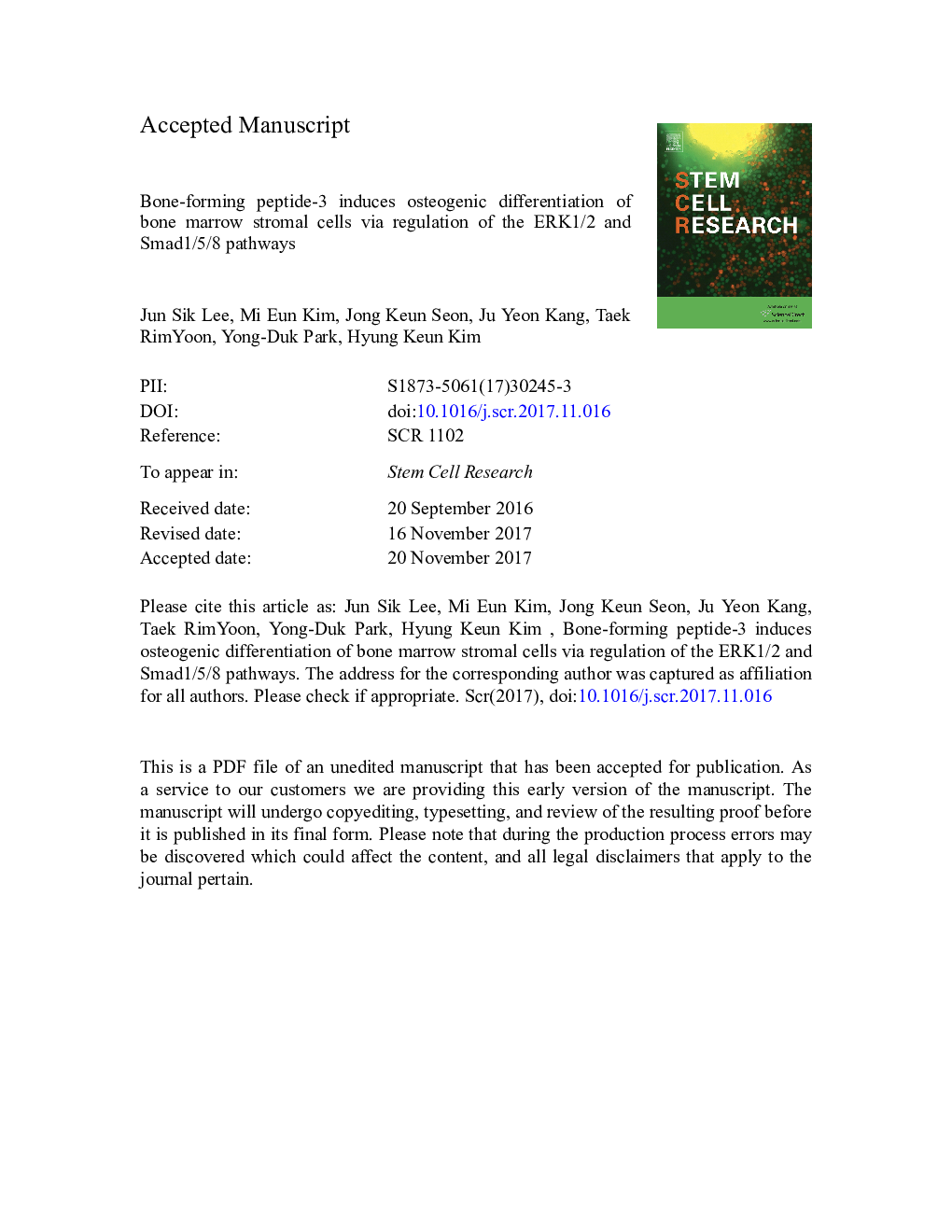| Article ID | Journal | Published Year | Pages | File Type |
|---|---|---|---|---|
| 8425620 | Stem Cell Research | 2018 | 32 Pages |
Abstract
A bone-remodeling imbalance induced by increased bone resorption and osteoclast formation causes skeletal diseases such as osteoporosis. Induction of osteogenic differentiation of bone marrow stromal cells (BMSCs) leads to bone regeneration. Many researchers have tried to develop new adjuvants as specific stimulators of bone regeneration for therapeutic use in patients with bone resorption. We tried to develop a new adjuvant that has stronger osteogenic differentiation-promoting activity than bone morphogenetic proteins (BMPs). In this study, we identified a new peptide, which we called bone-forming peptide (BFP)-3, derived from the immature precursor of BMP-7. Upon osteogenic differentiation, BMSCs treated with BFP-3 exhibited higher alkaline phosphatase (ALP) activity and mineralization ability and significantly up-regulated expression of osteogenic genes such as ALP, osteocalcin (OC), Osterix, and Runx2 compared with control BMSCs. Furthermore, fluorescence-activated cell sorting (FACS) and immunofluorescence analyses demonstrated that BFP-3 treatment up-regulated CD44 expression. Interestingly, extracellular signal-regulated kinase 1/2 (ERK1/2) and Smad1/5/8 phosphorylation was increased by BFP-3 treatment during osteogenic differentiation. Furthermore, BFP-3-induced osteogenic differentiation was significantly decreased by treatment with ERK1/2- and Smad-specific inhibitors. These results suggest that BFP-3 plays an important role in regulating osteogenic differentiation of BMSCs through increasing levels of osteogenic-inducing factors and regulating the ERK1/2 and Smad1/5/8 signaling pathways. Our finding indicates that BFP-3 may be a potential new therapeutic target for promoting bone formation.
Related Topics
Life Sciences
Biochemistry, Genetics and Molecular Biology
Biotechnology
Authors
Jun Sik Lee, Mi Eun Kim, Jong Keun Seon, Ju Yeon Kang, Taek Rim Yoon, Yong-Duk Park, Hyung Keun Kim,
